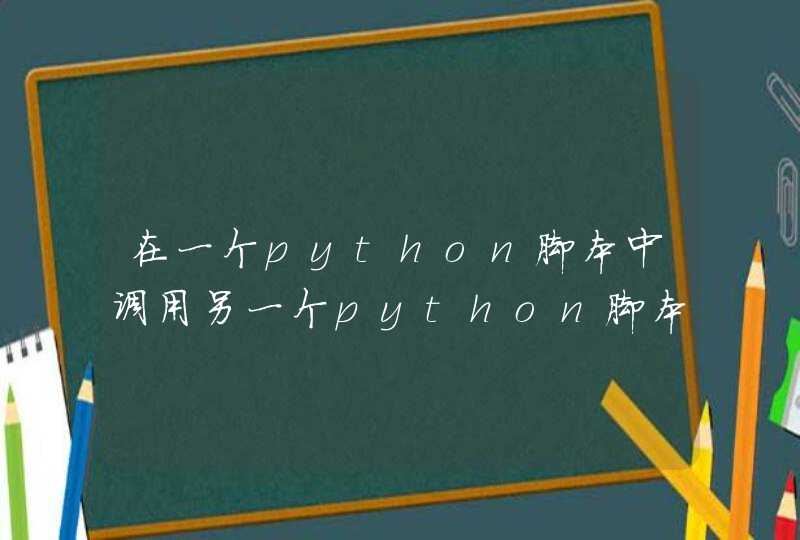
Linux下C语言的文件(fputc,fgetc,fwrite,fread对文件读写操作)
//
fputc 向文件写入字符
#include <stdio.h>
#include <stdlib.h>
main()
{
FILE *fp
char ch
if((fp=fopen("test.txt","w"))==NULL)
{
printf("不能打开文件\n")
exit(0)
}
while ((ch=getchar())!='\n')
fputc( ch, fp )
fclose(fp)
}
-------------
小提示:
fp=fopen("test.txt","w") ,把"w"改为 "a" 可以创建文件并且追加写入内容
exit(0)需要包含 stdlib.h 头文件,才能使用
//
fgetc 读取字符
#include <stdio.h>
#include <stdlib.h>
main( int argc, char *argv[] )
{
char ch
FILE *fp
int i
if((fp=fopen(argv[1],"r"))==NULL)
{
printf("不能打开文件\n")
exit(0)
}
while ((ch=fgetc(fp))!=EOF)
putchar(ch)
fclose(fp)
}
文件结尾,通过判断 EOF
//
fwrite 的使用
使数组或结构体等类型可以进行一次性读写
#include <stdio.h>
#include <stdlib.h>
main()
{
FILE *fp1
int i
struct student{
char name[10]
int age
float score[2]
char addr[15]
}stu
if((fp1=fopen("test.txt","wb"))==NULL)
{
printf("不能打开文件")
exit(0)
}
printf("请输入信息,姓名 年龄 分数1 分数2 地址:\n")
for( i=0i<2i++)
{
scanf("%s %d %f %f %s",stu.name,&stu.age,&stu.score[0],&stu.score[1], stu.addr)
fwrite(&stu,sizeof(stu),1,fp1)
}
fclose(fp1)
}
//
fread 的使用
#include <stdio.h>
#include <stdlib.h>
main()
{
FILE *fp1
int i
struct student{
char name[10]
int age
float score[2]
char addr[15]
}stu
if((fp1=fopen("test.txt","rb"))==NULL)
{
printf("不能打开文件")
exit(0)
}
printf("读取文件的内容如下:\n")
for (i=0i<2i++)
{
fread(&stu,sizeof(stu),1,fp1)
printf("%s %d %7.2f %7.2f %s\n",stu.name,stu.age,stu.score[0],stu.score[1],stu.addr)
}
fclose(fp1)
}
//
fprintf , fscanf, putw , getw , rewind , fseek 函数
这些函数的话我就不演示了 ,
这些函数基本都一对来使用,例如 fputc 和 fgetc 一起来用.
命令是查询当前登录的每个用户,它的输出包括用户名、终端类型、登录日期及远程主机,在Linux系统中输入who命令输出如下:我们先man一下who,在帮助文档里可以看到,who命令是读取/var/run/utmp文件来得到以上信息的。
我们再man一下utmp,知道utmp这个文件,是二进制文件,里面保存的是结构体数组,这些数组是struct utmp结构体的。
struct utmp {
short ut_type
pid_t ut_pid
charut_line[UT_LINESIZE]
charut_id[4]
charut_user[UT_NAMESIZE]
charut_host[UT_HOSTSIZE]
struct {
int32_t tv_sec
int32_t tv_usec
} ut_tv
/***等等***/
}
要实现who只需要把utmp文件的所有结构体扫描过一遍,把需要的信息显示出来就可以了,我们需要的信息有ut_user、ut_line、ut_tv、ut_host。
老师给的初始代码:who1.c运行结果如下:
需要注意的是utmp中所保存的时间是以秒和微妙来计算的,所以我们需要把这个时间转换为我们能看懂的时间,利用命令man -k time | grep 3搜索C语言中和时间相关的函数:
经过搜索发现了一个ctime()函数,似乎可以满足我们的需求,于是对代码中关于时间的printf进行修改:
printf("%s",ctime(&utbufp->ut_time))
编译运行发现出来的结果虽然已经转换成了我们能看懂的时间格式,但是很明显这个时间是错的:
搜索一下ut_time这个宏,发现它被定义为int32_t类型:
但是ctime()函数中要求参数的类型是time_t类型,所以重新定义一下类型,编译运行之后,发现时间已经改成了正确的,但是发现()中的内容被换行了,猜想ctime()函数的返回值可能自动在最后补了一个字符\n:
一开始想通过\r\b来实现“退行”,但实践后发现并不可取,最后考虑到直接修改字符串中最后一个字符为\0,让其字符串结束,使输出达到与系统who命令一样的效果,即在输出语句前添加如下代码:
cp[strlen(cp)-1] = '\0'
最后编译执行效果,发现解决了该问题:
虽然能看出基本上和who指令的执行结果一致,但是并非完全一样,主要在两点,第一是时间格式不一样,第二个是比who执行的结果多了几条,需要注意的是utmp中保存的用户,不仅仅是已经登陆的用户,还有系统的其他服务所需要的“用户”,所以在显出所有登陆用户的时候,应该过滤掉其他用户,只保留登陆用户。我们可以通过ut_type来区别,登陆用户的ut_type是USER_PROCESS。
先用if语句对执行结果进行过滤,效果如下:
接着解决时间格式问题,利用man命令收到了两个非常有用的函数:localtime()和strftime(),localtime()是把从1970-1-1零点零分到当前时间系统所偏移的秒数时间转换为本地时间,strftime()则是用来定义时间格式的,如:年-月-日,利用这两个函数对时间进行修改后,结果显示终于和系统中who命令一模一样:
最终完整的代码如下:
#include <stdio.h>
#include <stdlib.h>
#include <utmp.h>
#include <fcntl.h>
#include <unistd.h>
#include <time.h>
#define SHOWHOST
void show_time(long timeval){
char format_time[40]
struct tm *cp
cp = localtime(&timeval)
strftime(format_time,40,"%F %R",cp)
printf("%s",format_time)
}
int show_info( struct utmp *utbufp )
{
if(utbufp->ut_type == USER_PROCESS){
printf("%-8.8s", utbufp->ut_name)
printf(" ")
printf("%-8.8s", utbufp->ut_line)
printf(" ")
show_time(utbufp->ut_time)
printf(" ")
#ifdef SHOWHOST
printf("(%s)", utbufp->ut_host)
#endif
printf("\n")
}
return 0
}
int main()
{
struct utmp current_record
int utmpfd
int reclen = sizeof(current_record)
if ( (utmpfd = open(UTMP_FILE, O_RDONLY)) == -1 ){
perror( UTMP_FILE )
exit(1)
}
while ( read(utmpfd, ¤t_record, reclen) == reclen )
show_info(¤t_record)
close(utmpfd)
return 0
}

















![R语言 > pairs(iris[,1:4]) > pairs(iris[1:4]) 这俩语句画的图一样,,那个逗号是干嘛的??](/aiimages/R%E8%AF%AD%E8%A8%80+%26amp%3Bgt%3B+pairs%28iris%5B%2C1%3A4%5D%29+%26amp%3Bgt%3B+pairs%28iris%5B1%3A4%5D%29+%E8%BF%99%E4%BF%A9%E8%AF%AD%E5%8F%A5%E7%94%BB%E7%9A%84%E5%9B%BE%E4%B8%80%E6%A0%B7%EF%BC%8C%EF%BC%8C%E9%82%A3%E4%B8%AA%E9%80%97%E5%8F%B7%E6%98%AF%E5%B9%B2%E5%98%9B%E7%9A%84%EF%BC%9F%EF%BC%9F.png)


















































